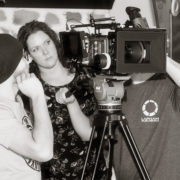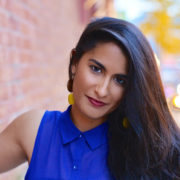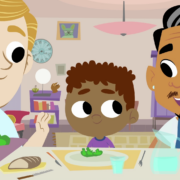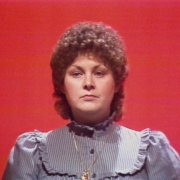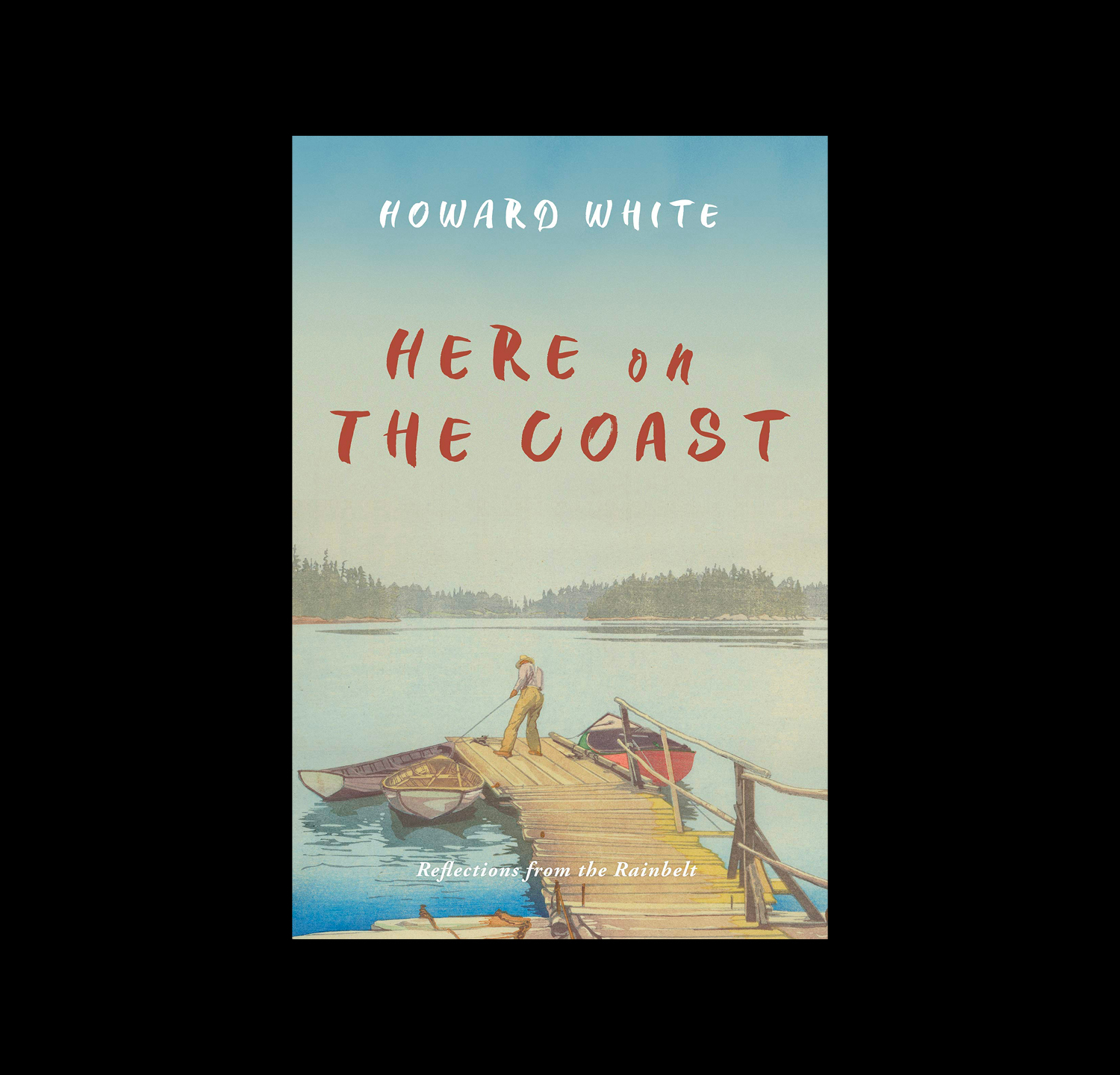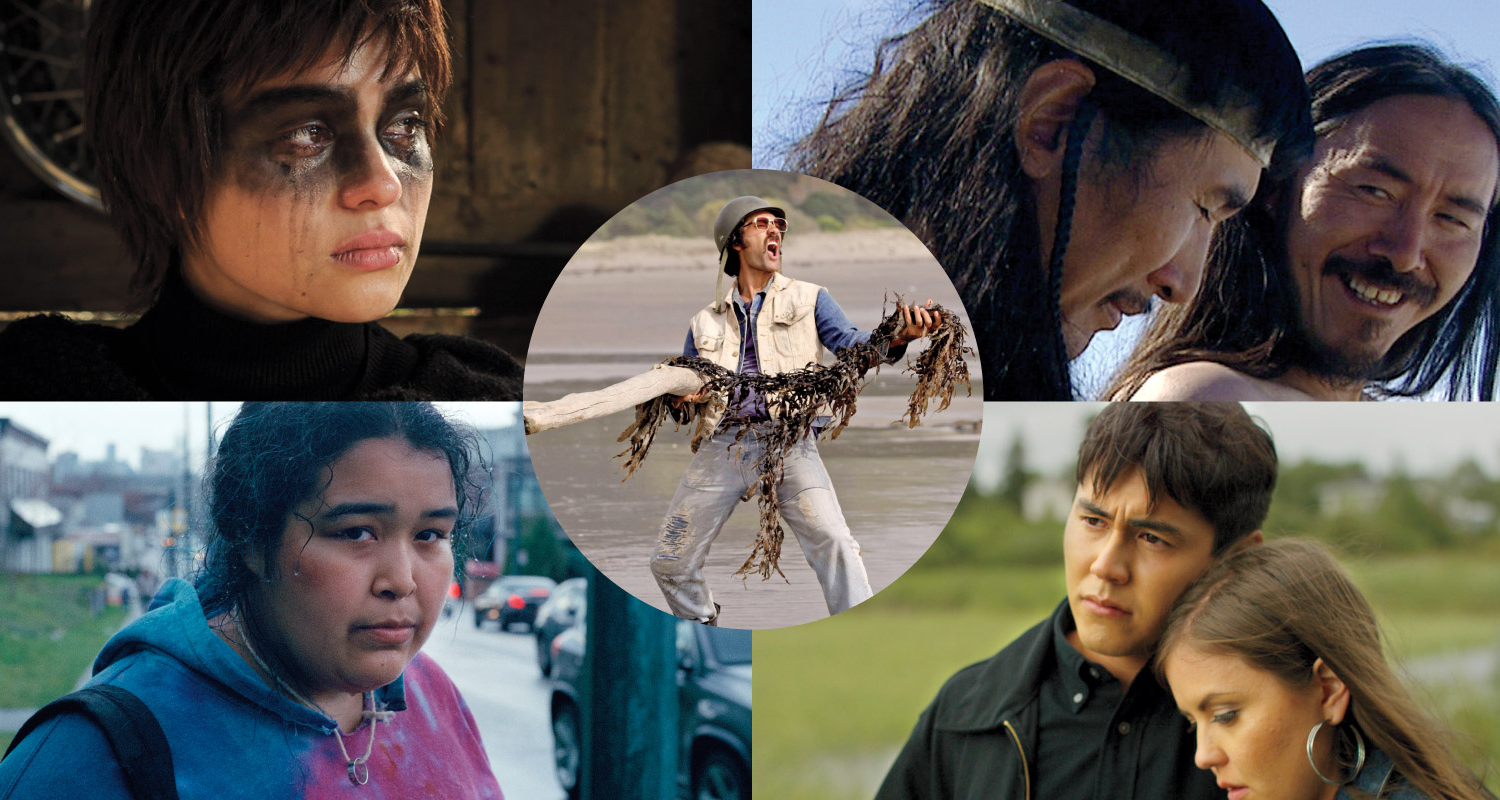In Someone Like Me (National Film Board of Canada), director duo Sean Horlor and Steve J. Adams take a verité approach to the generous and rough-edged nuances of what it means to sponsor an asylum seeker. The feature documentary chronicles the complexities of a journey taken by Drake, a 22-year old gay man from Uganda who has relocated to Vancouver, B.C. with hope for freedom without fear of discrimination, persecution, or violence.
Tasked with a year-long commitment as Drake’s primary support network, a group of strangers from Vancouver’s queer community unite under the banner of Rainbow Refugee, a non-profit that connects LGBTQ+ asylum claimants with sponsors. In the months following Drake’s arrival, facets of his turbulent experience and day-to-day challenges begin to parallel those of certain group members: as a gay Black man, Marlon also moved cities in order to live his life openly; David struggles to find job security after grad school; and Kay’s gender transition presents a long and emotional road to personal freedom. As problems are compounded by the unexpected complication of a global pandemic, the group must ask themselves difficult questions about their capacity, commitment and conditions of support. The substantive work includes meeting Drake’s immediate basic needs; but sustaining the necessary emotional and psychological assistance and mentorship over the next 12 months becomes a delicate business.
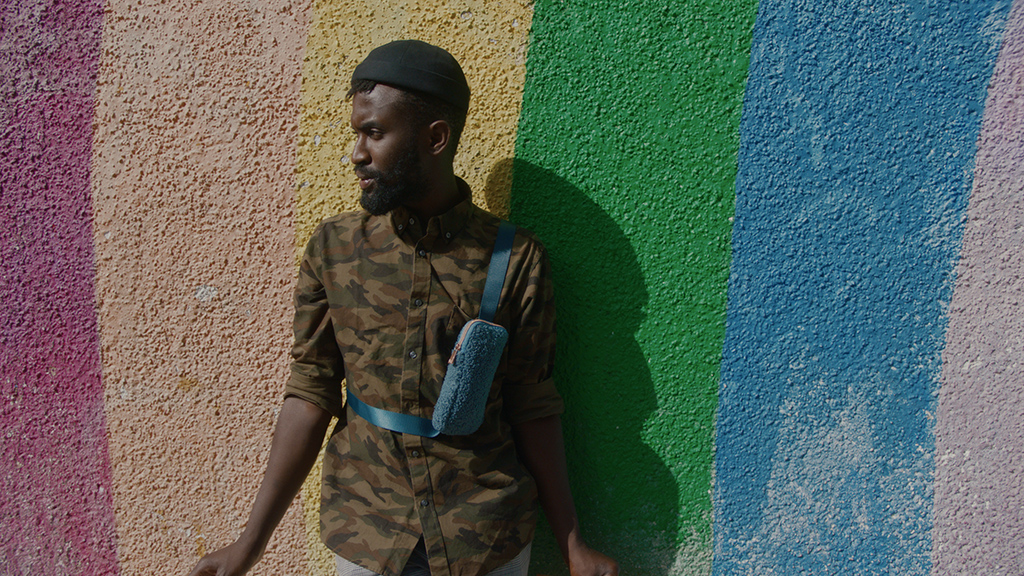
Drake (he/him) in Someone Like Me
As proud members of the LGBTQ+ community, directing duo Sean Horlor and Steve J. Adams have created work that shines a spotlight on misunderstandings—queer and otherwise. The duo has directed and produced more than 20 projects together, including the award-winning short The Day Don Died (Hot Docs 2019) and Brunch Queen (Inside Out 2018). They recently completed a series of shorts for Knowledge Network entitled Dear Reader, and their next feature documentary, Satan Wants You, is currently in development with CBC Documentary Channel.
This first-feature-length documentary from filmmakers Horlor and Adams intimately explores themes of survival while fighting for rights and liberation. Watch the trailer for Someone Like Me below and read about Horlor and Adams’ evolution and ongoing exploration of queer identity and the power of community.
SOMEONE LIKE ME is having its World Premiere at Hot Docs Festival, Toronto (April 29-May 9, 2021) and will screen at DOXA Documentary Film Festival, Vancouver (Western Canadian premiere), Rated Y for Youth Special Presentation (May 6-16, 2021), and NorthwestFest Edmonton (May 6-16).
[su_youtube url=”https://www.youtube.com/watch?v=U7WYG0RsKuU ” width=”500″]
What were the early days of this project like? How did you form this group?
Steve: We pitched this idea to the National Film Board of Canada’s BC & Yukon Studio back in 2015 as Trump was coming to power. Social media was unhinged and the anti-immigrant, anti-refugee rhetoric was flowing freely. I think in response to this, a lot of people started to look for ways to combat this, and what we saw were more people joining and posting about Rainbow Refugee. They were standing in solidarity with asylum seekers and refugees, saying that we have a responsibility as global citizens to do something about the refugee crisis and the persecution of queer people around the world. We had friends and colleagues who had sponsored newcomers through Rainbow Refugee in the past, and we thought: this is an important story and we want to tell it.
Sean: We spent two years researching the project, meeting and interviewing five sponsorship groups at different stages in different parts of B.C. This helped us understand what to expect during the 15 months we ended up filming. The people you see in the film did not meet each other until they walked into the first meeting and the cameras were rolling. We also didn’t know who they would sponsor, their gender identity and sexuality, where in the world they were coming from, or if they would consent to be filmed. We took so many risks with this film, and I can’t believe the NFB came along for this ride.
Why was it important to make “Someone Like Me”?
Steve: Sean and I make films together, but we are also a queer couple. It was really important for us to make a film that was a portrait of our community. We wanted to capture what queer life looks like today. We keep hearing back from early screenings that people are surprised that it’s so much more than a refugee film. The subjects in the film are young and funny and represent a good cross-section of what the queer community looks like today.
What do you want viewers to connect with most about this film?
Sean: A greater sense of empathy for asylum seekers, refugees, and immigrants—and an understanding that the challenges they face don’t magically disappear when they arrive in a new country. Steve and I tend to process trauma through humour and this tends to be something that runs through most of our filmmaking. We hope viewers connect with that as well.
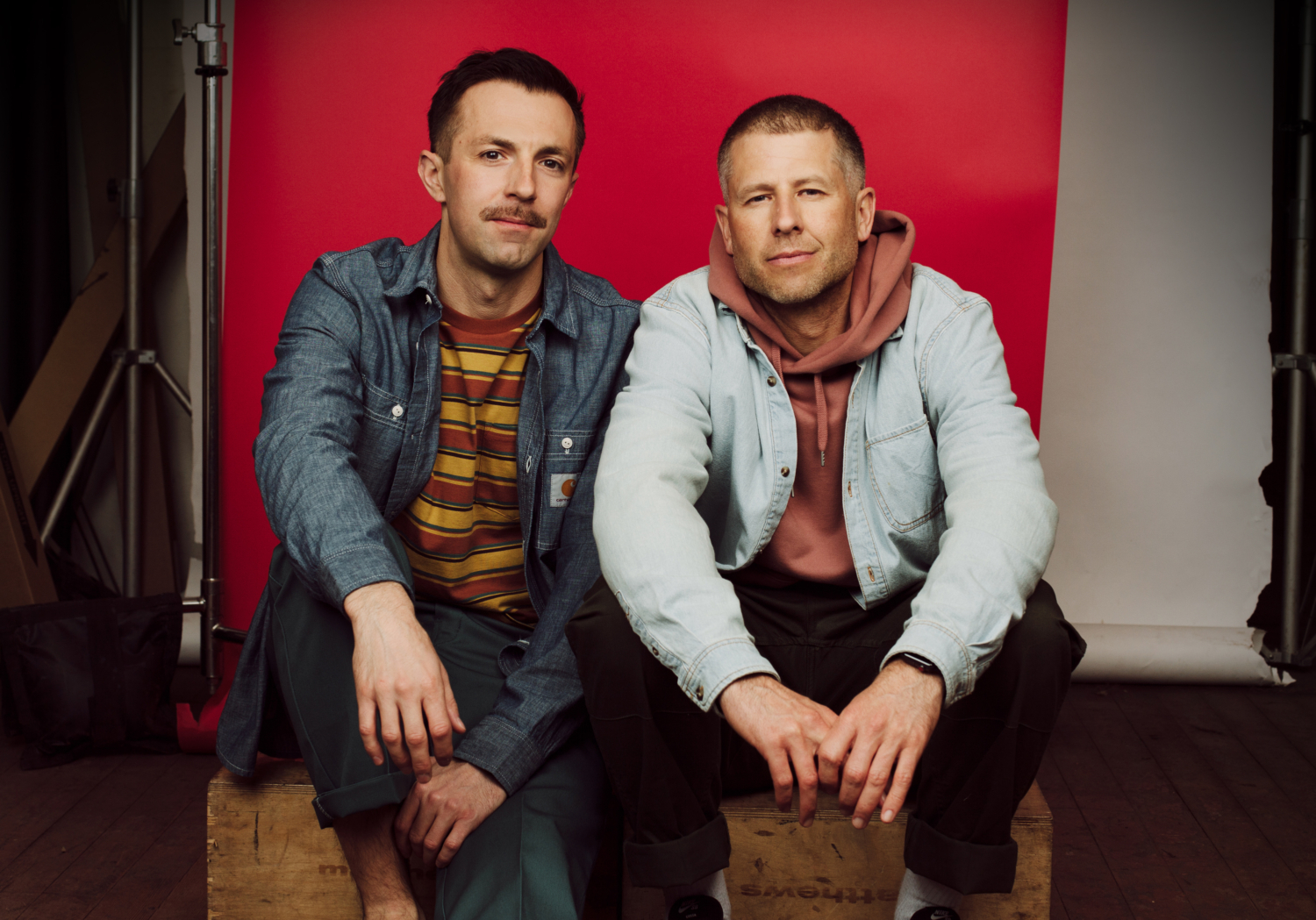
Sean Horlor & Steve J. Adams, Photo: Grady Mitchell
How have you stayed creative throughout the pandemic?
Steve: The pandemic hit halfway through production! We stayed creative during the pandemic by figuring out how to film with all the restrictions in British Columbia. We ended up sending an iPhone 11 to the subjects, along with a list of activities and ideas they could shoot. We tried to make it like a game. We were all each other’s support network during the first and second waves of COVID. This was not the film we were planning to make, but the self-filmed sections are some of the most intimate moments in Someone Like Me.
How do you think storytelling can bridge more fluency in inclusion and representation?
Sean: Television and films are often the first places someone will meet a queer person and learn about queer culture, which is why representation on screen and behind the camera is so important. During the same-sex marriage legalization effort in California, researchers found that people who had met a queer person, even just once, were more likely to vote in favour of same-sex marriage and other queer rights. The effects of representation are so positive for our community, and it’s a huge motivation for us as filmmakers.
Can you tell us a bit more about sponsorship circles and how other communities can adopt these practices?
Steve: Our film is told through the lens of the queer community, but this is a process anyone across Canada can do. You’d be surprised how many people in your community have already done this. I come from a tiny town in Northern BC, and friends of my mom were sponsoring a Syrian family when we started this project back in 2015. Anyone can do this. You can also donate to organizations like Rainbow Refugee if group work is not your thing.
What’s was your most memorable takeaway from creating this feature?
Steve: Finishing it! Just kidding. Sort of. I think the relationships that we made with Kay and Emily and David and Brenda and Drake from the film, and our NFB producer Teri Snelgrove, are relationships we’ll have for life. We went through two really challenging years together and I am forever grateful to these folks.
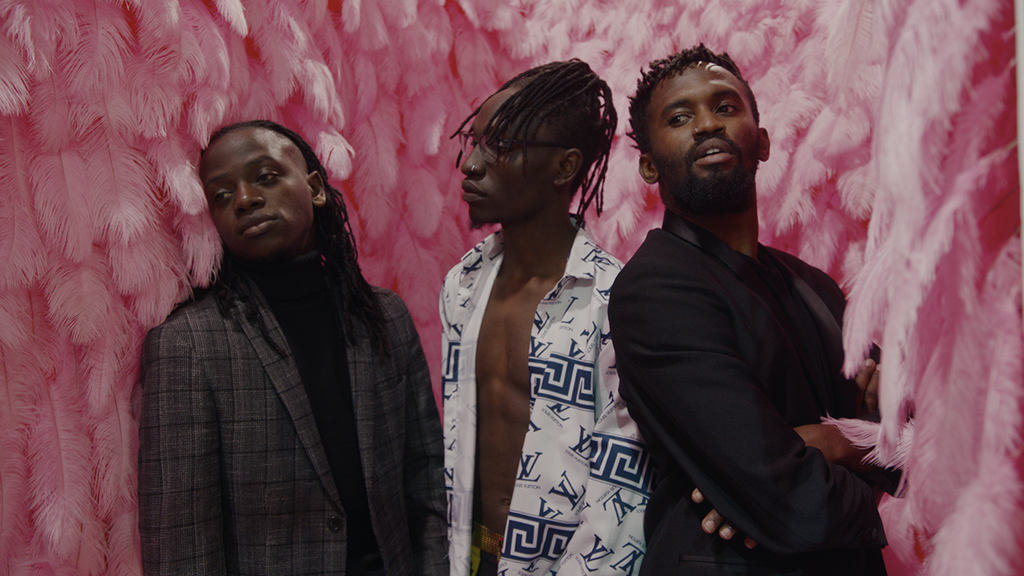
Left to right: Conrad (he/him), Rayan (he/him) and Drake (he/him) in Someone Like Me
How have you seen conversations and representation about queerness change over the years in the industry?
Sean: I remember being in a meeting with VICE a couple of years ago, just after they completed a survey that found that over 50 percent of Gen Z and younger millennials identify as queer or gender non-binary. That blew my mind. We’re really proud to be part of a growing movement of queer filmmakers telling stories about the LGBTQ+ community. For a long time, our stories weren’t told by members of our community because gender and sexuality have been criminalized for most of recent history. We’re really privileged to be living in this moment.
What does the future of queer storytelling in film look like to you?
Steve: THE FUTURE IS QUEER! We’ve seen every genre told 15,000 different ways with straight characters. Now it’s queer people’s turn. Horror, action, romantic, all of them! I want to watch the queer version of all of these. And want to make them too! Queer culture is now popular culture, and the future looks bright.
Learn more
More about the film | Someone Like Me Electronic Press Kit
Sean Horlor + Steven J. Adams Website | www.seanandsteve.ca
Sean Horlor | Twitter, Instagram, Facebook
Steve J. Adams | Twitter, Instagram, Facebook
National Film Board of Canada | Website
National Film Board | Twitter, Instagram, Facebook

